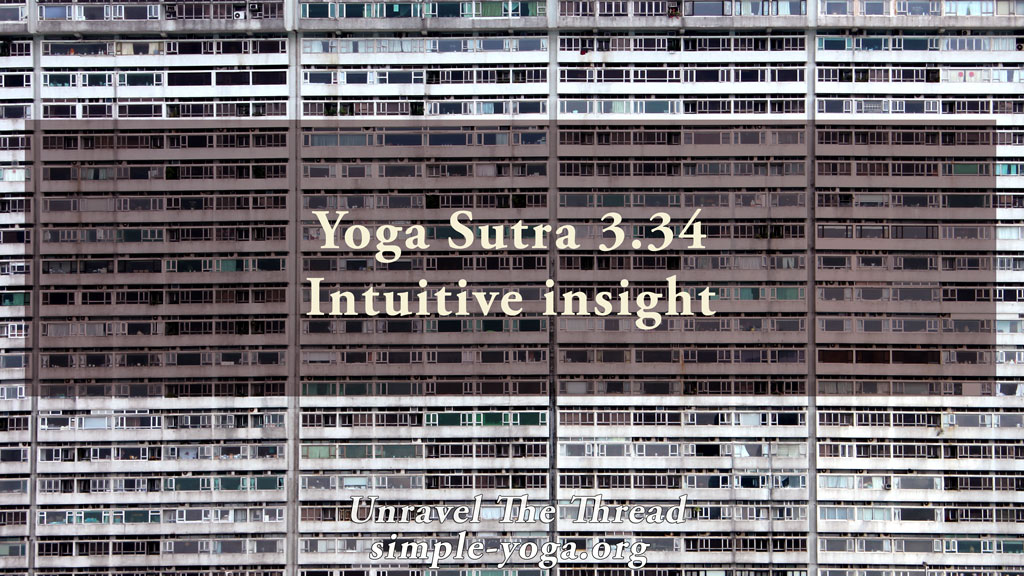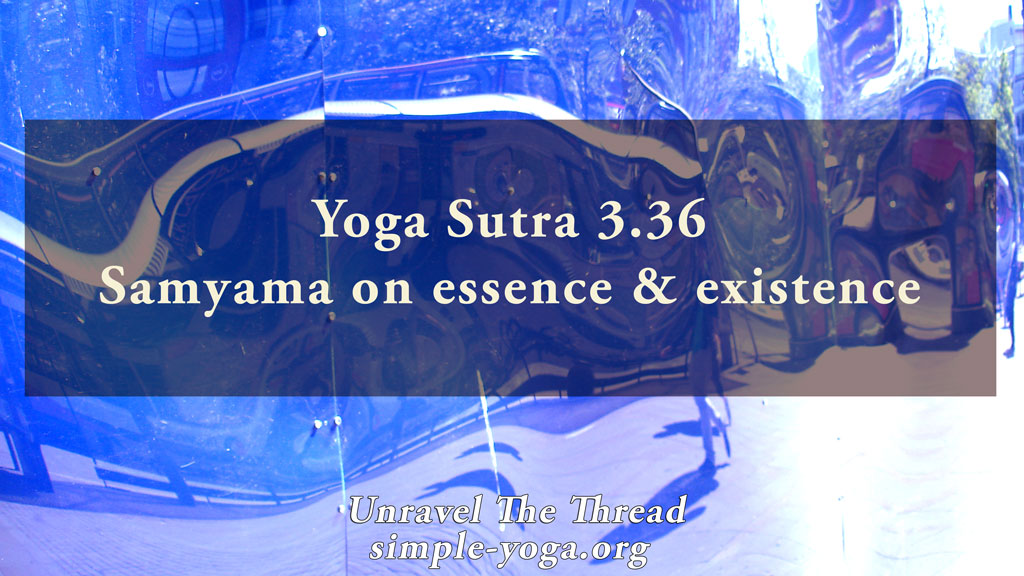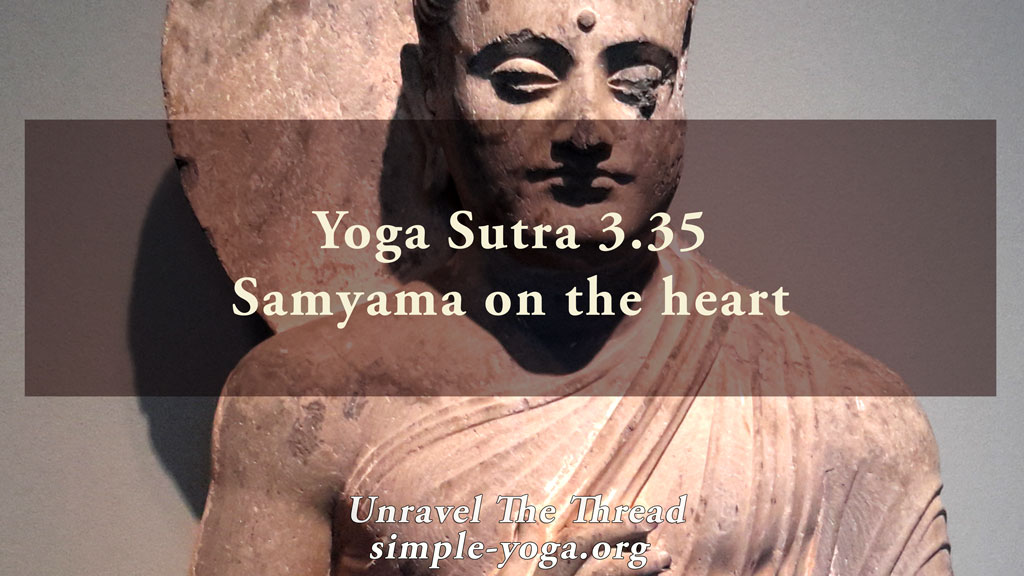
3.34 Intuitive insight
December 28, 2021
3.36 Samyama on difference essence and existence
January 4, 2022
3.34 Intuitive insight
December 28, 2021
3.36 Samyama on difference essence and existence
January 4, 20223.35 Samyama on the heart

3.35 By meditative integration (samyama) on the heart, the mind is understood.
By practicing meditative integration on the center of the chest, the emotional heart, citta is understood. Remember that citta is one of the four words in the definition of yoga in Chapter One of the Yoga Sutra. Citta is also one of those Sanskrit words that has several meanings including intention, aim, attending, thinking, reflecting, wish, mind, memory, intelligence, and reason. In some of the ancient texts called the Upanishads, the space around the heart is said to be the dwelling of the light of awareness. Does it ever happen to you that you are trying to make a decision and that the logical reasons suggesting one choice are in conflict with your emotions and feelings? On the other hand, has it ever happened to you that you made a choice following your heart and then you found yourself in a difficult predicament? This sutra can be considered a pivotal aphorism for practice because it highlights the deep connection between your mind and your emotions. When mind and emotions align, the blockages created by doubt and fear disappear. Conflict between mind and emotions is a major source of pain and suffering for many people. Learning to integrate your mind with your emotions makes you more effective, decisive, and compassionate.
From the simplest perspective, you can start by exploring how your physical posture affects your state of mind and mood. Sitting in a hunched position with your shoulders raised, your chest collapsed, and your head down, try to think uplifting and inspiring thoughts. Then, explore what position would shift your internal environment towards feeling boastful and full of pride. Continue this inquiry by finding a posture conducive to feeling optimistic, hopeful, uplifted, and filled with kindness and compassion.
Does it seem that your posture, especially the space around your heart, can influence your mind and emotions?
Does one of these positions generate a feeling of lightness and clarity in heart and mind?
Can that lightness and spaciousness be the brightness mentioned in sutra 3.33?
Is it possible that, in addition to the relationship between your physical posture, your mind and your mood, there is a close connection between your mind and your heart?
Can you be curious to investigate this connection?
For instance, if your mind is open, does it cause your heart to feel more generous, caring and forgiving?
Does the connection work also in the opposite direction?
If your heart feels more open, generous, caring, kind and forgiving, does your mind feel more willing to be inclusive, cooperative, and understanding?
One avenue for furthering this exploration is by linking this inquiry to the sutra immediately preceding this one, 3.34, where it says that intuitive insight provides access to all knowledge.
Can you become skilled at meditating on your heart when there is confusion or agitation in your mind?
As you become more practiced in receiving insight, might it be possible that intuitions arrive in your heart and from there are communicated to your mind?
Can it be the case that harmony between your mind and heart confirms your insights with your knowledge as mentioned in aphorism 1.6 (direct experience – pratyaksha, inference – anumana, and traditional wisdom coming from the past – agama)?
Does common sense resonate with both your mind and your emotions?
As you try to follow intuitive insight, check if it provides useful guidance for living your life with enthusiasm, intelligence and humility (kriya yoga 2.1).
As usual, one more way of exploring the meaning of this sutra is by chanting it.
You can choose to chant it in its traditional form with some of the words coming together:
3.35 hrḍaye cittasaṃvit
ह्र्डये चित्तसंवित् ॥३५॥
Another option is to chant each word in the sutra individually:
- • hrḍaye
- • citta
- • saṃvit
If you prefer, you may listen to the podcast:
This is an excerpt from the book Unravel the thread: Applying the ancient wisdom of yoga to live a happy life
If you find Simple-Yoga.org and Unravel the thread useful, consider supporting my labor with a donation, you may also donate using PayPal or Venmo. Thank you!
